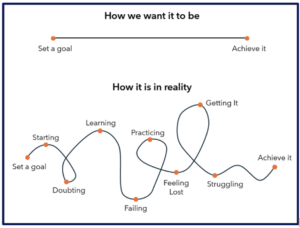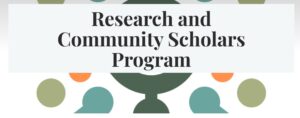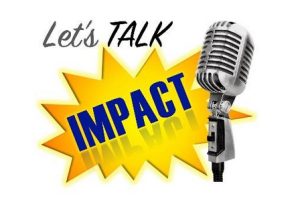By Laura Pinsoneault and Kristen Gardner-Volle
We want to see progress and we want to see it now! But the slow pace of change can be a gnawing frustration for non-profits committed to better fulfilling their mission.
Why is it so hard to figure out better ways of accomplishing our goals?
In all likelihood, it comes down to how an organization’s culture views change, its embrace of systems thinking and empowering the workforce to approach problems in new, more creative ways.
One part of the solution is to hire people with a growth and learning mindset, instead of the more traditional practice of looking for candidates with experience with a specific program or strategy. The difference is this: some people work to execute strategies in order to demonstrate their productivity. They are tactical. They work a plan. Others – those with growth mindsets – see the potential in changing strategies to create greater impact for an organization, in which case strategy execution is creative and becomes more about moving an organization forward and less about completing tasks.
For example, let’s say a program has mailed hard copies of materials for the past ten years, at the request of program participants. A staff member hired to implement or coordinate a program with a fixed mindset would continue this practice under the justification that it is part of the program model, and a user requested it. This is a fixed, tactical response. But is that really the best response? A staff person hired to scale and sustain organizational impact would explore the underlying reason and context behind the original practice and seek solutions better suited to the current context and needs of the program. For example, do we need to do a better job helping people access and understand technology? Or even ask the question, is this program still relevant?
Candidates with a growth mindset are best positioned to help free the organization from the practices and programs of the past that once served you well but no longer offer results, given today’s challenges. They can be critical team members who bring constructive curiosity and systems thinking with an eye towards impact.
Of course, the problems we face are complicated and it’s rarely easy to find the clearest path forward. That’s why the approach necessary to address these messy issues is the key to unlocking better solutions. And those best-positioned to find that key are systems thinkers. Bring them in, and they’ll help identify new ways of addressing problems without being tethered to the ways of yesteryear.
Here’s how to find the systems thinkers who can help your organization transform itself into a more effective version of itself:
- Advertise for a growth mindset, not a tactical skillset or expertise
- Title the position for the impact you want to achieve; not for a specific program
- Pledge to candidates that there are no programs or practices that can’t be challenged and that the organization is committed to innovation
When staff with this mindset are in place, the organization learns to develop its staff instead of continually hiring and firing more people to run costly, ineffective programs that never quite get at real problems. This approach requires a culture change, which can include current staff, by focusing more on learning than on productivity. But when necessary, it also might mean managing people out of an organization who feel their worth is tied up in a program they champion, even though the data suggest another approach is needed.
Since hierarchies exist in every workplace, it’s essential that leadership exudes support for this approach so staff feel empowered to try new things and explore ideas.
One thing is certain, there needs to be more than a single, systems change-thinker on staff! In fact, staff with this attitude must pervade the organization and cannot be siloed in one position within the organization. Instead, these active learners must be scattered throughout the workplace to build momentum toward solutions that better negotiate the hurdles in front of us.
When such an approach to problem solving becomes immersed in the organization, learning becomes prioritized and results are then reached at a faster clip. The price of success means letting go of the old and welcoming new, more innovative ways to address the big issues you face.
Every organization devoted to making a real difference in the world deserves this approach, and nothing less.
Laura Pinsoneault, PhD, is President and CEO of Evaluation Plus.Kristen Gardner-Volle, MS, is a Research & Evaluation Associate.






